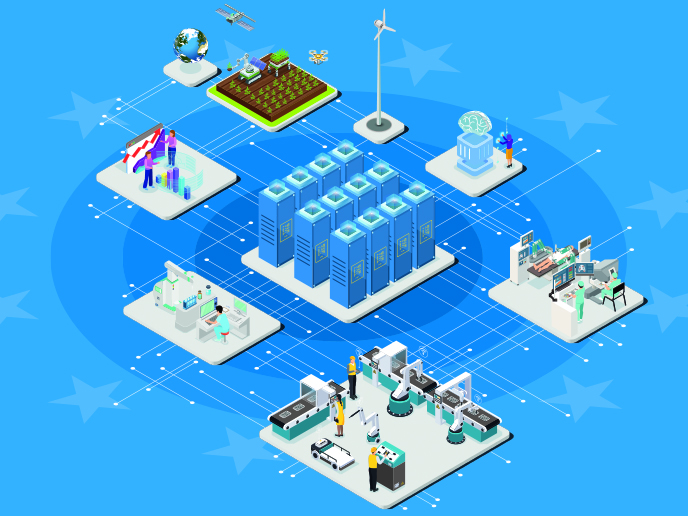No European country has the capacity to develop world-class supercomputing resources individually. Cooperation, knowledge-sharing and the pooling of resources at European level are essential. The EuroHPC JU brings together the resources and expertise of 31 European countries and partners to build a leading European supercomputing ecosystem. The aim is to offer every participating country more opportunities than they would otherwise have, and lead the way in the global supercomputing race. Since its creation in 2018, the Joint Undertaking has substantially increased overall investments in HPC at European level and has started to restore Europe’s position as a leading HPC power globally. The Joint Undertaking is not only procuring supercomputers, but investing in research to develop innovative and competitive supercomputing technologies, applications, skills and expertise, based on a supply chain that will reduce Europe’s dependency on foreign manufacturers. From the initial 29 research projects currently managed by the EuroHPC JU, this Projects Info Pack highlights nine that reflect the diverse range of topics addressed by the Joint Undertaking. A central objective of the Joint Undertaking is developing innovative, homegrown and sustainable HPC technologies, such as the development of a low-power microprocessor (EPI SGA2), a platform for users to submit complex simulation requests to HPC data centres (HEROES), and a unique incubator for quantum-HPC hybrid computing (HPCQS). Another objective of the EuroHPC JU is to develop applications, algorithms and software to be run on the supercomputers by public and private users. These include drug design (LIGATE), disease modelling (MICROCARD) and aerospace engineering (NextSim), as well as energy, climate research and more. A third objective is to develop the skills needed to widen the use of HPC for a larger number of public and private users, wherever they are located in Europe. EuroCC is creating a network of national HPC Competence Centres to ease access to European HPC opportunities in different sectors, while FF4EuroHPC supports SMEs which want to benefit from the use of HPC services to develop innovative products and services. Finally, EUMaster4HPC has set up a pioneering pan-European HPC Master of Science programme to educate the next generation of HPC experts across Europe. Currently, five EuroHPC JU supercomputers are operational in Bulgaria, Czechia, Finland, Luxembourg and Slovenia. The construction of an additional three supercomputers is under way in Italy, Portugal and Spain, with more systems planned for the near future. The investment delivered by the Joint Undertaking is of critical importance in developing a world-class supercomputing ecosystem in Europe, which will boost European competitiveness and innovation, and improve the quality of life of European citizens.
Building the future
Applied computing
21st Century skills
Share this page
Download
Last update: 4 July 2022
Permalink: https://cordis.europa.eu/article/id/442361-leading-the-way-in-european-supercomputing
European Union, 2025



